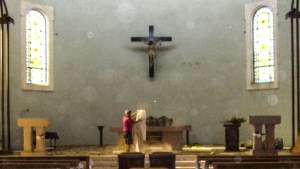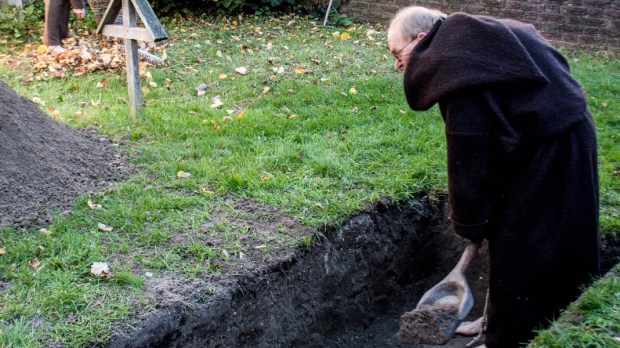Lenten Campaign 2025
This content is free of charge, as are all our articles.
Support us with a donation that is tax-deductible and enable us to continue to reach millions of readers.
In parish life one of the most undervalued jobs, while also being the most necessary, is that of the sexton. Someone must do this particular task and very few parishioners are willing to do it.
Originally the role of sexton was essentially that of a sacristan. The sexton lived near the parish church, cared for it and maintained the liturgical items for Mass. In addition to his liturgical tasks, the sexton would also assist in burying the dead and caring for the parish cemetery.
Over time the roles of sacristan and sexton were separated. Sacristans performed their duties within the church, while sextons were hired to tend the church grounds and cemetery.
In this way the sexton constantly fulfills the Corporal Work of Mercy of “burying the dead.” However, few recognize this reality and see it more as a job that nobody wants to do.
Digging graves may not be as “glorious” of a task as a sacristan, but it remains an important duty when a church has its own burial ground. The sexton is in charge of treating each burial with great care, respecting the innate dignity of the human body. It is also his or her duty to help families choose a proper burial place while in the midst of their own grief.
Sextons are vital to parish life, even though their work is not always appreciated or valued.
Read more:
The holy and necessary work of gravediggers

Read more:
What is a sacristan?

